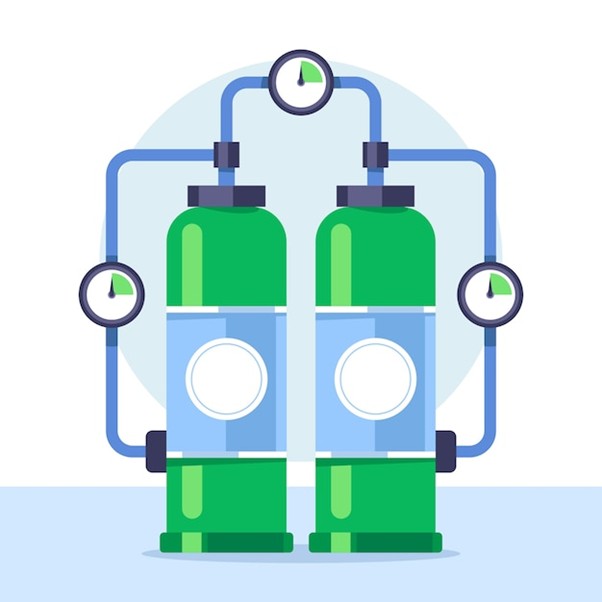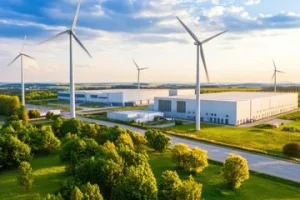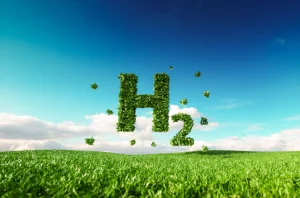Advantages of Alkaline Electrolysers in Large-Scale Hydrogen Production
As the world turns the page on fossil fuels and flips to clean energy, the spotlight is now shining bright on green hydrogen, a zero-carbon, versatile fuel with the power to decarbonise everything from the chemical industry to heavy transport.
One of the oldest and most trusted technologies enabling this shift? Alkaline electrolysis.
At the heart of this method are alkaline electrolysers—systems that use liquid alkaline solutions to split water into hydrogen and oxygen gases using electricity. When that electricity is sourced from wind or solar, the produced hydrogen is completely clean, making this technology a critical enabler in the transition to green hydrogen.
While newer methods like proton exchange membrane (PEM) and solid oxide electrolysis are gaining attention, alkaline water electrolysers continue to dominate the field of large scale hydrogen production—and for good reason.
Let’s dive into five compelling reasons why this time-tested tech remains the go-to choice for industries aiming to scale fast and clean.

1. Proven Performance in Industrial Powerhouses
Alkaline electrolysers aren’t the new kids on the block—they’ve been reliably splitting water into hydrogen and oxygen gases for over a century. That kind of track record isn’t just impressive—it’s industrial gold.
These systems thrive in demanding environments and are already widely deployed in:
- Chemical manufacturing
- Steel and fertiliser production
- Power-to-gas and energy storage projects
Their ability to deliver produced hydrogen consistently under tough conditions makes them a natural fit for large scale hydrogen production—especially where reliability is non-negotiable.
2. Cost Advantage Without Compromise
In a world where green solutions often come at a premium, alkaline electrolysers break the mold. Compared to other electrolysis technologies, especially proton exchange membrane (PEM) and solid oxide, alkaline systems are notably more budget-friendly.
Here’s why they shine in terms of cost-effectiveness:
- Use of non-precious metal catalysts (like nickel instead of platinum)
- Operation at lower pressures
- Simple and robust balance-of-plant design
These features mean lower capital investment and operational costs—key advantages for developers focused on scaling green hydrogen projects affordably.
3. Durability, Simplicity, and Accessible Materials
Alkaline electrolysis uses a liquid alkaline electrolyte, usually potassium hydroxide (KOH) or sodium hydroxide (NaOH). This setup enables:
- Stable operation at moderate temperatures (~60–90°C)
- High ionic conductivity
- Minimal wear and tear on system components
Pair this with easily sourced materials like nickel for electrodes, and you’ve got a recipe for systems that are simple to manufacture, operate, and maintain—even in remote or resource-constrained regions.
For project developers, that means less downtime, lower maintenance, and a smoother path to long-term hydrogen output.
4. Seamless Integration with Wind or Solar
Flexibility is the name of the game when working with renewable energy. Solar and wind don’t deliver consistent power 24/7—your hydrogen tech needs to be able to keep up.
Here’s where alkaline water electrolysers hold their own:
- Can adapt to variable electricity inputs
- Quick to ramp up or down as energy availability changes
- Integrate well into hybrid renewable energy systems
By converting surplus wind or solar power into produced hydrogen, these electrolysers act like dynamic batteries—storing energy for later use, whether that’s for electricity generation or fuelling a fuel cell.
5. Scalability That Matches Global Demand
As the global demand for green hydrogen grows, so does the need for large scale hydrogen production technologies that can keep up.
Alkaline electrolysis is built for scale:
- Modular systems allow for easy capacity expansion
- Proven design simplifies mass deployment
- Commercial availability reduces lead time
Whether you’re building a regional hydrogen hub, powering the chemical industry, or fuelling a fleet of fuel cell vehicles, alkaline water electrolysers offer a solid foundation to scale confidently.
Final Thought
While the hydrogen landscape evolves with exciting innovations like proton exchange membrane and solid oxide systems, the reliable, scalable, and affordable performance of alkaline electrolysers makes them indispensable—especially for near-term deployments.
In the race toward clean energy, these workhorses offer something many newer technologies can’t: proven reliability at scale.
For any company or government serious about reducing emissions and transitioning away from fossil fuels, alkaline water electrolysis is a logical, low-risk entry point into the green hydrogen economy.
Power Progress with Confidence — Partner with YonderH2
At YonderH2, we’re not just supplying electrolysis systems—we’re shaping the future of clean energy. Our advanced alkaline water electrolysers are engineered for performance, longevity, and integration into real-world, high-demand environments.
Whether you’re targeting industrial decarbonisation, utility-scale green hydrogen hubs, or hybrid energy systems powered by wind or solar, we’ve got you covered.
Let’s scale hydrogen the smart way.
The growing global demand for green hydrogen has made large-scale hydrogen production a key priority for industries and nations aiming to decarbonize. At the heart of this transition lies the proven and reliable alkaline electrolyser technology. Known for its robustness, cost-efficiency, and scalability, alkaline electrolysers are playing a crucial role in making hydrogen production both practical and sustainable. Here’s why they are the preferred choice for large-scale hydrogen projects around the world.

- Cost-Effective Technology for Scaling Up
Alkaline electrolysers have a significant economic advantage when it comes to large-scale hydrogen production. Compared to other electrolysis technologies, such as Proton Exchange Membrane (PEM) electrolyser, alkaline systems are:
- Less expensive to manufacture due to their reliance on abundant materials like nickel for electrodes instead of costly rare metals like platinum or iridium.
- Proven and mature, with decades of industrial use ensuring reliability and optimized production processes.
For large-scale operations, this cost advantage enables industries to achieve economies of scale, reducing the cost per kilogram of hydrogen produced and making green hydrogen competitive with conventional grey hydrogen.
- High Operational Durability and Long Lifespan
In large-scale hydrogen production, consistency and reliability are critical. Alkaline electrolysers offer high operational durability, capable of functioning efficiently for thousands of hours under continuous load. Their design is robust, with key features like:
- Resistance to fluctuations in operating conditions, ensuring stable performance even in demanding industrial environments.
- Longer lifespans compared to other electrolyser technologies, which makes them ideal for projects that require consistent hydrogen production over many years.
For industries and governments investing in hydrogen infrastructure, the reliability of alkaline electrolysers ensures long-term value and reduced maintenance costs.
- Seamless Integration with Renewable Energy
Alkaline electrolysers are perfectly suited to work with renewable energy sources like solar and wind power. Their flexibility enables them to:
- Operate effectively during periods of surplus renewable energy generation, helping to convert excess electricity into storable green hydrogen.
- Run continuously during stable energy production, optimizing output for large-scale hydrogen plants.
This capability bridges the gap between intermittent renewable energy supply and the demand for consistent hydrogen production, making alkaline electrolysers a perfect partner for renewable-powered hydrogen hubs.
- Scalability for Industrial Hydrogen Needs
The scalability of alkaline electrolysers makes them ideal for meeting the hydrogen requirements of large industries. Whether it’s for ammonia production, refineries, or steel manufacturing, alkaline systems can be deployed in modular setups to match varying production scales.
For instance, a large steel plant transitioning to green steel production can integrate multiple alkaline electrolyser units to meet its hydrogen demands efficiently. Similarly, chemical industries that rely on hydrogen for processes like ammonia synthesis benefit from alkaline electrolysers’ ability to scale up without performance losses.
This modularity ensures that industries can start with smaller deployments and expand as their hydrogen requirements grow, creating a smooth and cost-effective transition.
- Availability of Established Infrastructure and Expertise
Alkaline electrolysers have been in operation for decades, providing a strong foundation of expertise and established infrastructure. This maturity translates into several benefits:
- Well-understood processes for installation, operation, and maintenance, ensuring quicker project execution.
- A wide ecosystem of suppliers and service providers familiar with alkaline systems, reducing deployment risks and delays.
For large-scale green hydrogen projects, where timelines and reliability are critical, this established ecosystem makes alkaline electrolysers a low-risk and highly dependable choice.
Conclusion
Alkaline electrolysers are a cornerstone technology in the global shift toward large-scale production of green hydrogen. Their cost-effectiveness, long-term durability, and seamless integration with renewable energy make them a natural choice for industries looking to scale up their clean energy capabilities. Utilizing an alkaline solution with potassium hydroxide (KOH) as the electrolyte, these water electrolysers efficiently split water into hydrogen and oxygen gases using cathode and anode electrodes in the process of alkaline water electrolysis.
By leveraging the proven advantages of these electrolysers, industries and nations can enhance production capacity, drive down costs, and meet ambitious sustainability goals. With applications spanning fuel cells and other hydrogen-driven technologies, these systems are pivotal in reducing reliance on fossil fuels. In an era where scalability and efficiency are key, alkaline electrolysers stand out as the trusted solution to unlock a greener, more sustainable tomorrow.




